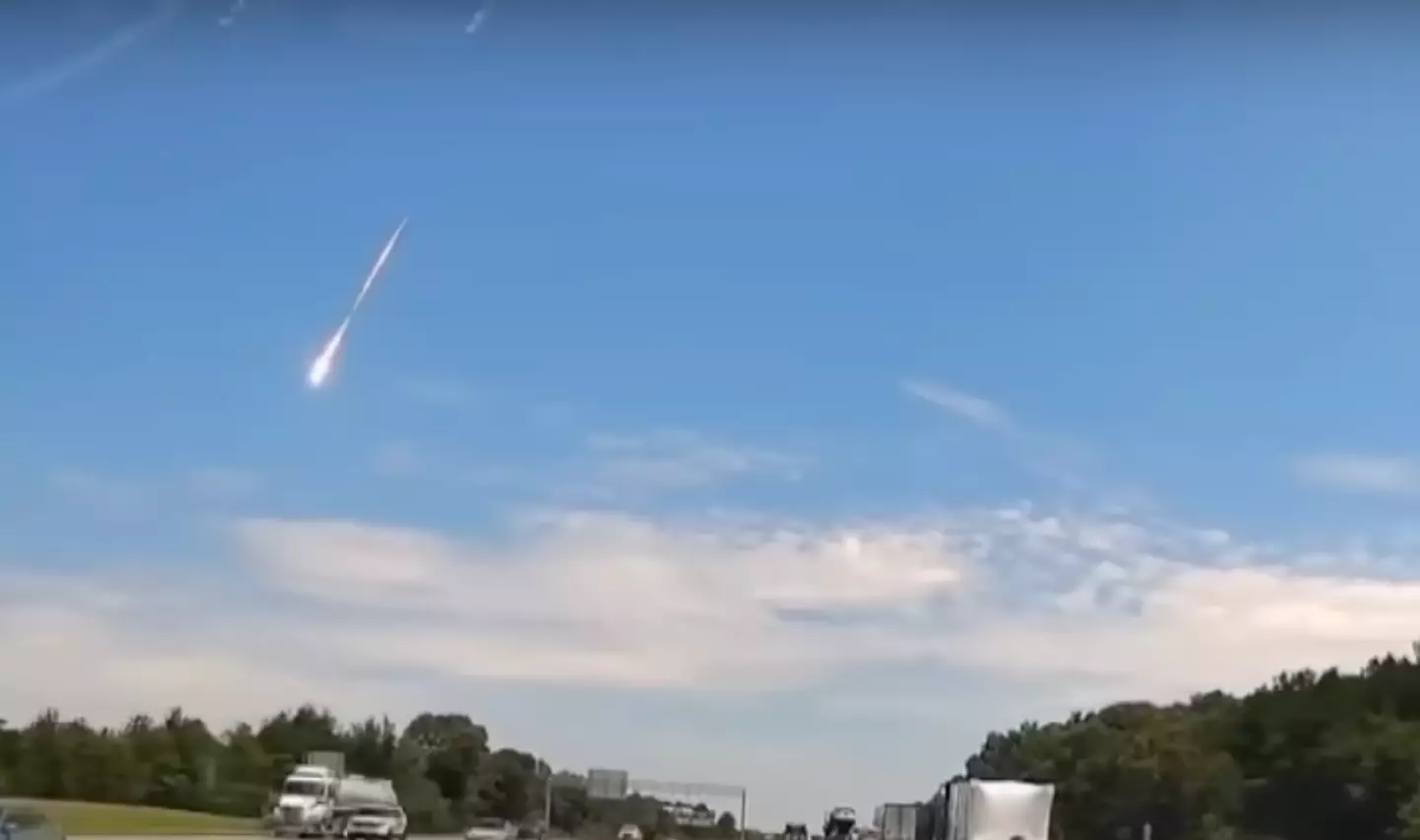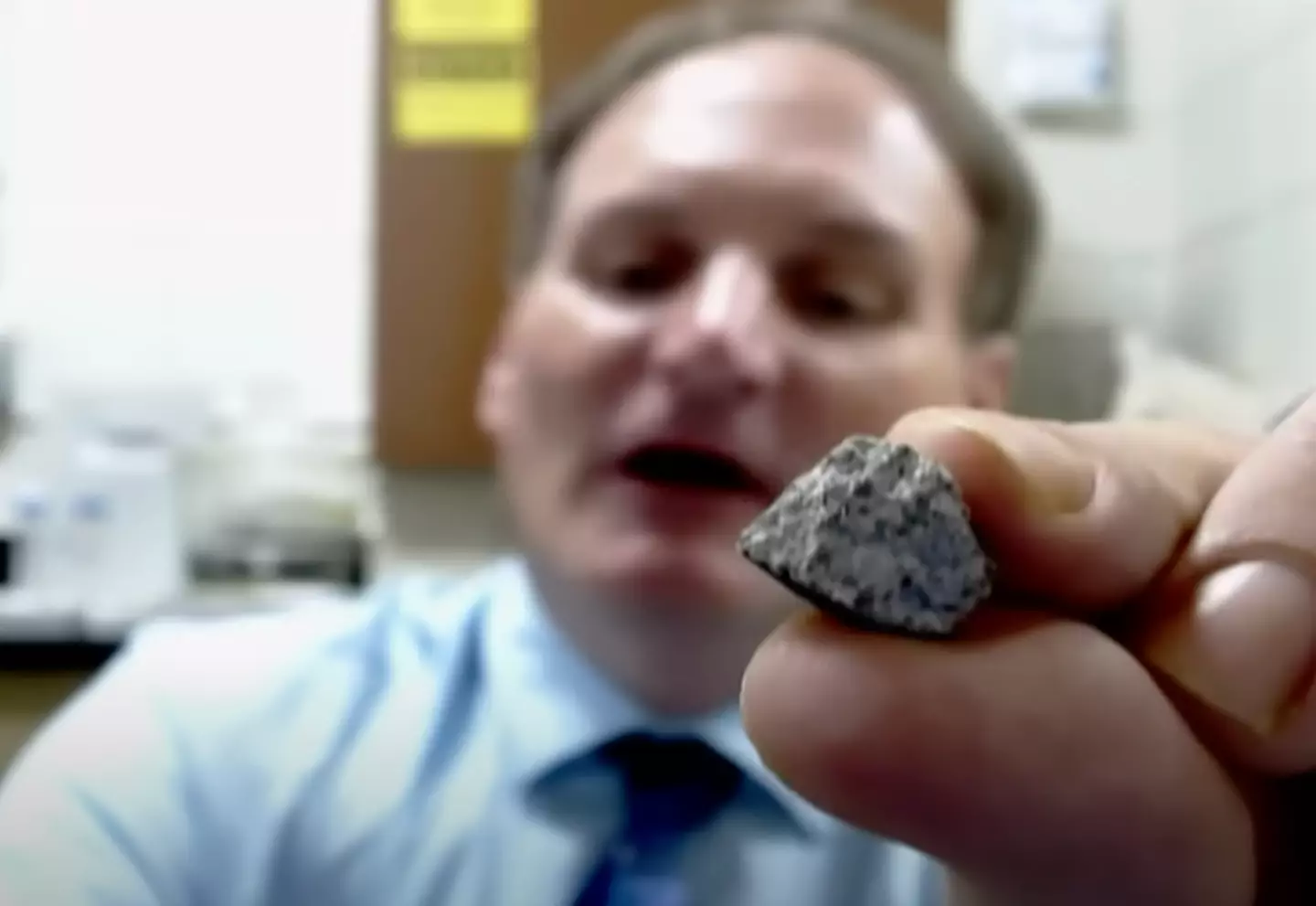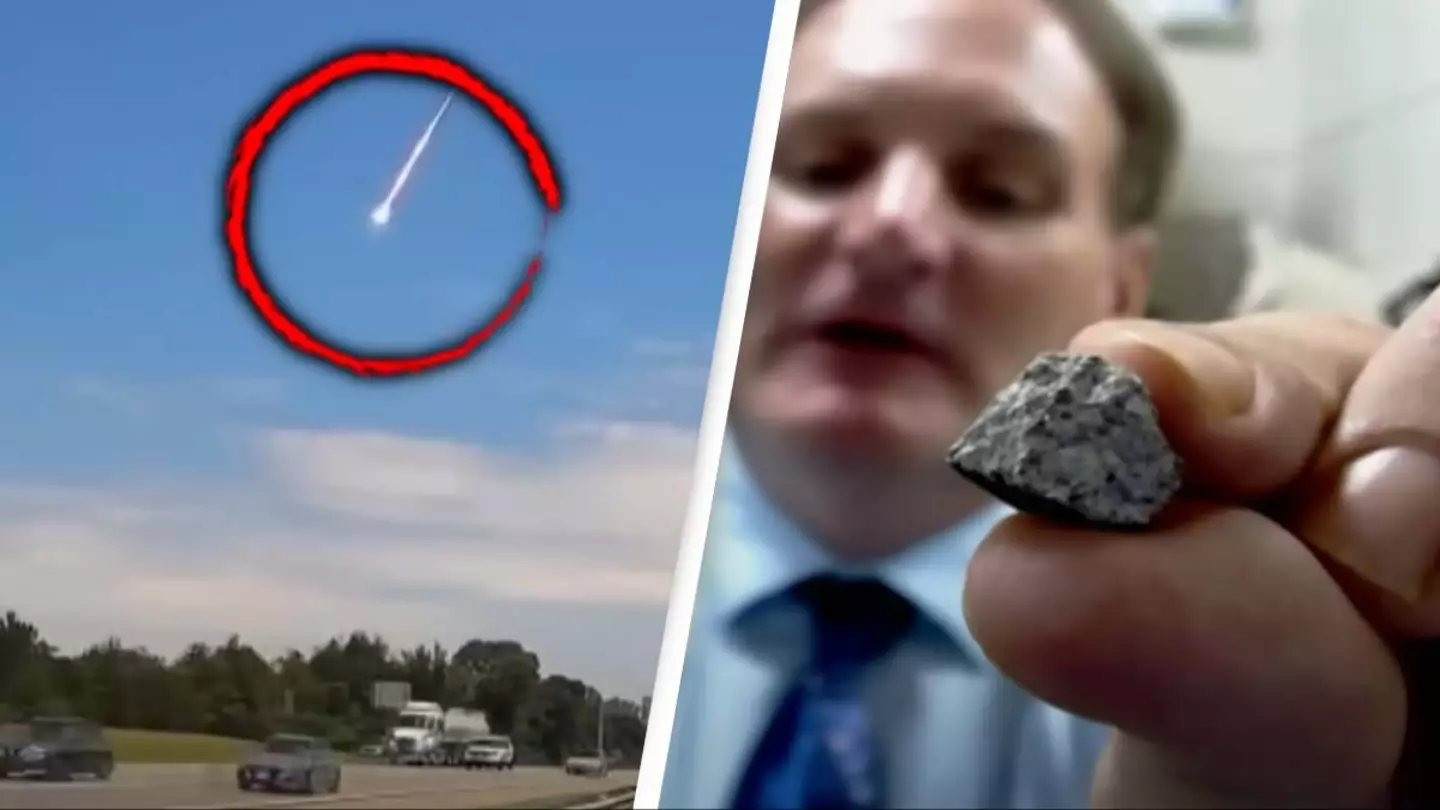NASA has confirmed that a meteorite, which was visible even in daylight, exploded across the skies of Georgia this past June.
There are countless objects roaming through space, and occasionally, one will enter Earth’s trajectory, becoming visible when using the right equipment.
Occasionally, these meteoroids actually make it all the way to Earth’s surface, impacting the ground with explosive force.
On June 26, a meteorite did just that, striking a home in Georgia as confirmed by NASA.
Upon analysis, experts discovered something fascinating about the meteorite.
They determined that the space rock likely formed around 4.56 billion years ago, making it approximately 20 million years older than our planet.
The meteorite’s fiery descent was witnessed by many in the area, with hundreds of residents reporting a loud boom as the fireball crashed.

Though it lost some mass as it burned up in the atmosphere, the meteorite still managed to pierce through a roof in Henry County.
Scott Harris, a geologist from the University of Georgia, shared insights after examining fragments of the meteorite.
He remarked: “This particular meteor that entered the atmosphere has a long history before it made it to the ground of McDonough.”
Harris continued: “This is something that used to be expected once every few decades and not multiple times within 20 years.” He noted that “modern technology, along with an alert public, is aiding in the recovery of more meteorites.”
This find marks the 27th meteorite recovery in Georgia, now named the McDonough meteorite.
In an interview with Inside Edition, planetary geologist R. Scott Harris discussed the event further.

He stated: “Someone could have been very seriously hurt.”
Harris explained that the homeowner was only 14 feet away at the time, wearing noise-canceling headphones, yet still heard a loud sound similar to a gunshot before seeing debris enter the room.
Harris emphasized the importance of continued research into meteorite speeds to better comprehend potential future asteroid threats.
He cautioned: “One day there will be an opportunity, and we never know when it’s going to be, for something large to hit and create a catastrophic situation. If we can guard against that, we want.”

